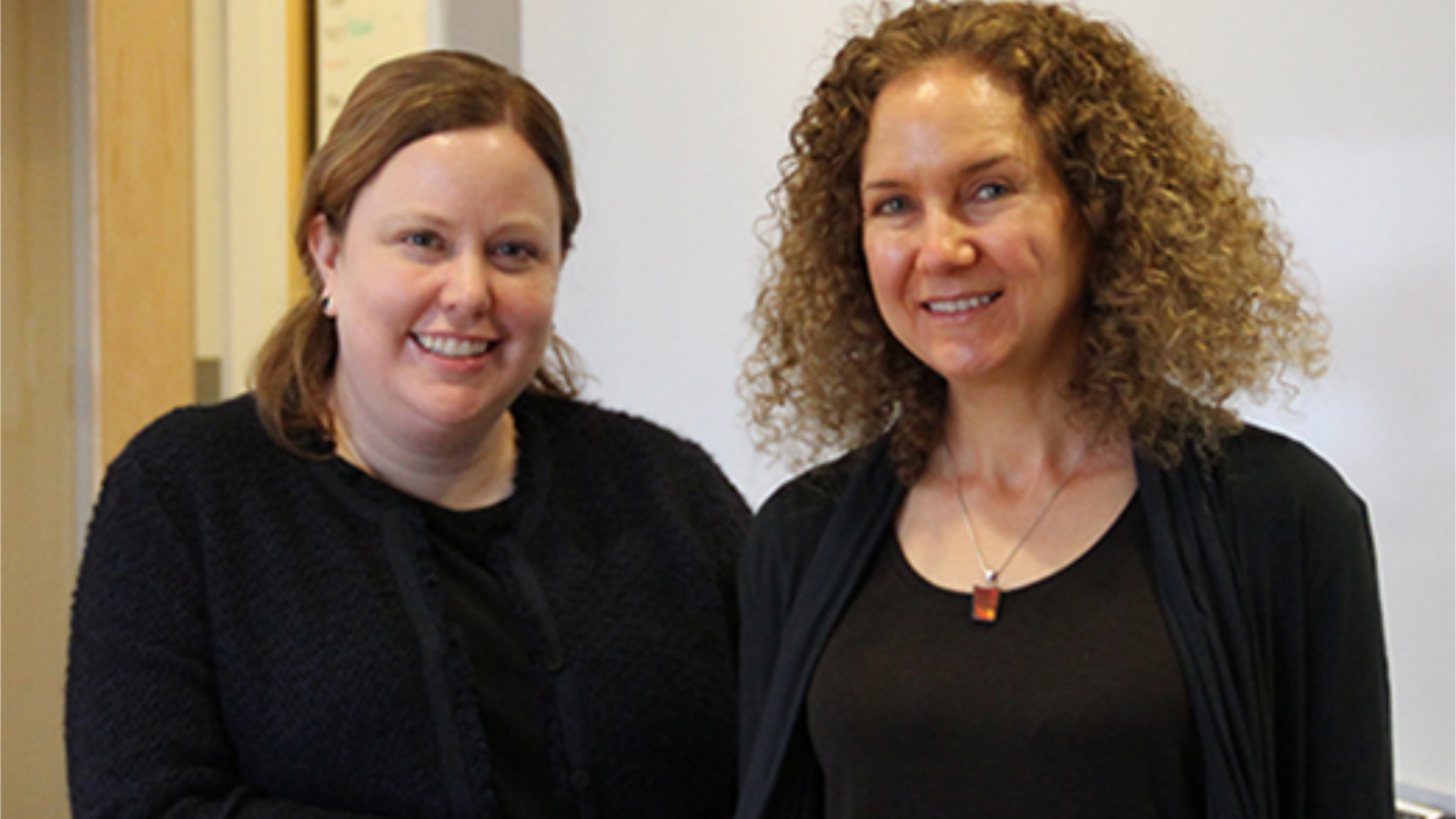
From right: Janet Best and Kate Caider
Professor of mathematics Janet Best and professor of statistics Catherine (Kate) Calder were recently appointed co-directors of the Mathematical Biosciences Institute.
The Mathematical Biosciences Institute (MBI) is an interdisciplinary national institute funded by the National Science Foundation (NSF) and Ohio State, and it is currently in its 15th year. In this time, MBI has run 160 week-long workshops and hosted 12,000 workshop participants and 325 long-term visitors from across the world. It has trained more than 80 postdoctoral fellows, many of whom have gone on to assume prominent positions in academia and industry. Institute activities have fostered innovation in the application of mathematical, statistical and computational methods to advance research in areas ranging from cancer genetics and neuroscience to ecology and evolution.
Simultaneously, MBI activities have supported the development of new areas in the mathematical sciences motivated by important biological questions. Moreover, MBI has leveraged its support from the NSF, Ohio State and institutional partners to provide a variety of vertically integrated training opportunities for undergraduates, graduate students, postdocs and researchers. The institute has also fostered innovative diversity programs and established a virtual National Mathematical Biology Colloquium.
Janet Best’s research focuses on applications of mathematics to human physiology, especially brain physiology. She has created and analyzed mathematical models of the biophysics of neurons, the behavior of neuronal networks and the mechanisms of sleep-wake regulation using bifurcation theory and nonlinear dynamics. Another major emphasis of her work is understanding the synthesis and control of neurotransmitters in the brain, along with applications to depression and Parkinson’s disease. With collaborators, she has discovered new homeostatic mechanisms in the biochemistry of the brain that are important for protecting against genetic polymorphisms. Understanding such homeostatic mechanisms and their control is important for precision medicine. This work has led to new questions in stochastic dynamical systems and bifurcation theory. Her research has been supported by the Air Force Office of Scientific Research, The Alfred P. Sloan Foundation, the National Institute of Health and a CAREER award from the NSF.
Kate Calder’s research focuses on the development of stochastic models for phenomena that exhibit complex dependencies, particularly when the dependencies are spatial and/or temporal in nature. Her methodological contributions have been in the areas of dimension reduction for spatio-temporal data, the development of covariate-driven nonstationary spatial models, data-augmentation algorithms for Bayesian spatial generalized linear (mixed) models, latent space models for two-mode networks, and model-based comparisons of networks. Much of her research is motivated by applications in the environmental, social, and health sciences. She has received funding for her research from the NIH, NSF, NASA and other agencies and foundations.
Read more about the Mathematical Biosciences Institute at mbi.osu.edu.
[Photo credit: MBI]
